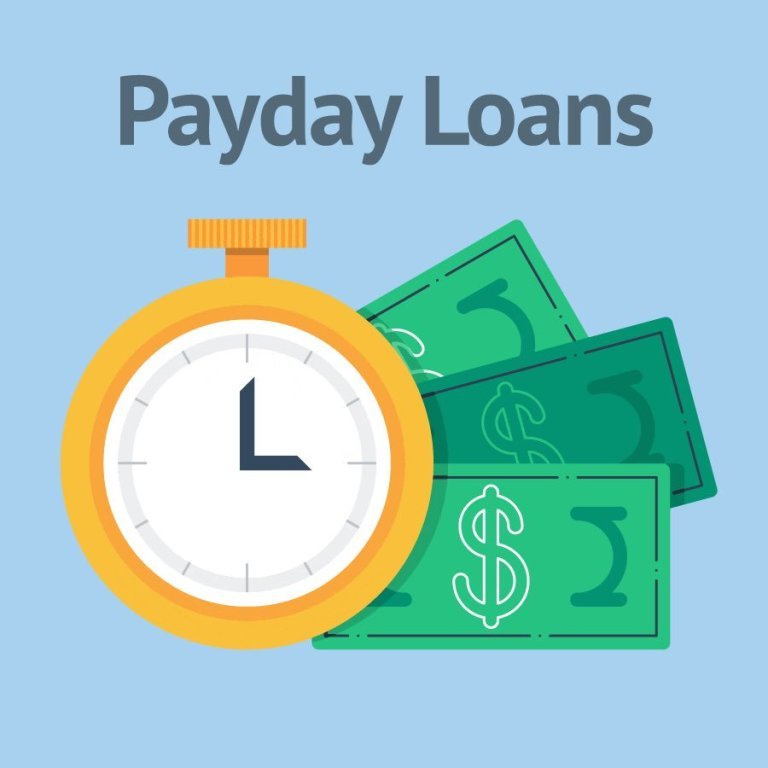
Are you in the market for a personal loan?
You’re not alone! Considering that the total amount of personal debt Americans owner is at $120 billion – a record high – it’s safe to say millions of people are taking out these loans.
Perhaps you’ve got a sudden health bill to settle and your paycheck is several days away. Or your car just broke down and you’re dead broke.
Whatever your circumstances, you’ll quickly learn that you have two options:
installment loan or payday loan.
Which should you go for?
Here’s an installment loan vs payday loan guide to help you make a sound decision.
What’s an Installment Loan?
An installment loan is any type of personal loan that’s paid in installments (usually monthly) over a long period of time.
A good example of an installment loan is an auto loan. When you take out a loan to buy a car, your lender will require you to make monthly repayments for a certain period, say three years.

Another example of an installment loan is a mortgage. There are also a host of installment loans with product names that vary from lender to lender.
Do you get to decide the number of installments you’ll need to make when applying for an installment loan?
Typically, lenders determine loan terms and often offer variations. For instance, you could choose to go for a 15-year mortgage or 30-year mortgage. It all depends on your ability to repay it within a certain timeframe.
Bear in mind, though, that the longer the term of a loan, the more the interest you’ll pay.
What’s a Payday Loan?
A payday loan is a personal loan that’s fully repaid on the day your next paycheck hits your account.
To illustrate, let’s say you’re usually paid on the last day of every month. If you take out a $500 payday loan on the 15th day of the month, your lender will automatically deduct this amount plus interest from your upcoming paycheck.Payday loans are also known as cash advances.

Payday loans are usually offered by informal lenders and cash merchants while cash advances are offered by commercial banks, credit unions, and other formal lenders.
Installment Loans vs Payday Loans: Similarities
From the basic descriptions of the two loan products, you can tell they have a couple of similarities and differences. Let’s begin with what they have in common.
You Don’t Need to Provide a Reason for Borrowing
Both payday loans and installment loans fall under the broad category of personal loans. This means lenders don’t really care about your reason for borrowing the money. As long as you meet their approval requirements, you’ll get the loan.
That said, it’s common to find installment loans that are designed for specific purposes. For instance, if you want to take out an installment loan to buy a car, just apply for an auto loan instead of applying for a generic personal loan.
Both Loans Can Get You Out of a Jam
When you’re in a financial emergency, either of these loans is an ideal way to raise money quickly.
Although banks have a reputation for bureaucratic approval processes, times are changing. As they embrace financial technology, today it’s possible to get a bank loan approved in a matter of minutes or hours.

So if you want money to settle a $500 bill tomorrow, you can go in for a payday loan or an installment loan – assuming you’re not considering other factors, such repayment period and interest rates.
Installment Loan vs Payday Loan: The Differences
When you’re comparing two things, it’s more prudent to pay attention to their difference than similarities. More often than not, it’s in the differences that you’ll find a product’s unique value proposition.
Here is the real installment vs payday showdown!
Repayment Period
You already know repayment periods for installment loans can vary from a few months to several years. On the other hand, the repayment period for a payday loan ranges from a few days to one month.
In most cases, the length of a payday loan will depend on your paycheck schedule. If you’re paid bi-monthly, for instance, you’ll repay the loan in about 14 days’ time.
Loan Amounts
Payday loans offer small amounts of money ($100- $1,000). Installment loans offer substantial amounts of money, ranging from $500 to $500,000 or more, depending on your financial circumstances.

From these amounts, you can tell that payday loans aren’t meant for big-ticket expenses. If you’re looking to buy a car or a house, an installment loan is your only choice.
Credit Checks
Because installment loans offer lots of money and are usually offered by formal lenders, qualification requirements are stiffer. Lenders will check an applicant’s credit score as well as income.
On the other hand, most payday loan lenders won’t give a hoot about your credit history. They’re only interested in your income. As such, these loans tend to target employed people with bad credit or no credit at all.
Interest Rates
Payday loans are known to charge astronomic rates. Specific rates and rate caps vary from lender to lender and from state to state, but the average annual percentage rate on payday loans is 391%

The interest rate on an installment loan can vary depending on your credit history and repayment period, but the APR is a lowly 10 percent.
Installment Loan vs Payday Loan: Have Your Pick!
From this installment loan vs payday loan guide, it’s clear any rational person should go for the former. However, there are circumstances, such as poor credit, that can force you to go for a payday loan.
Either way, you’re now in a better position to make a choice that fits your individual financial circumstances.
Stay tuned to our blog for more financial tips and insights.




